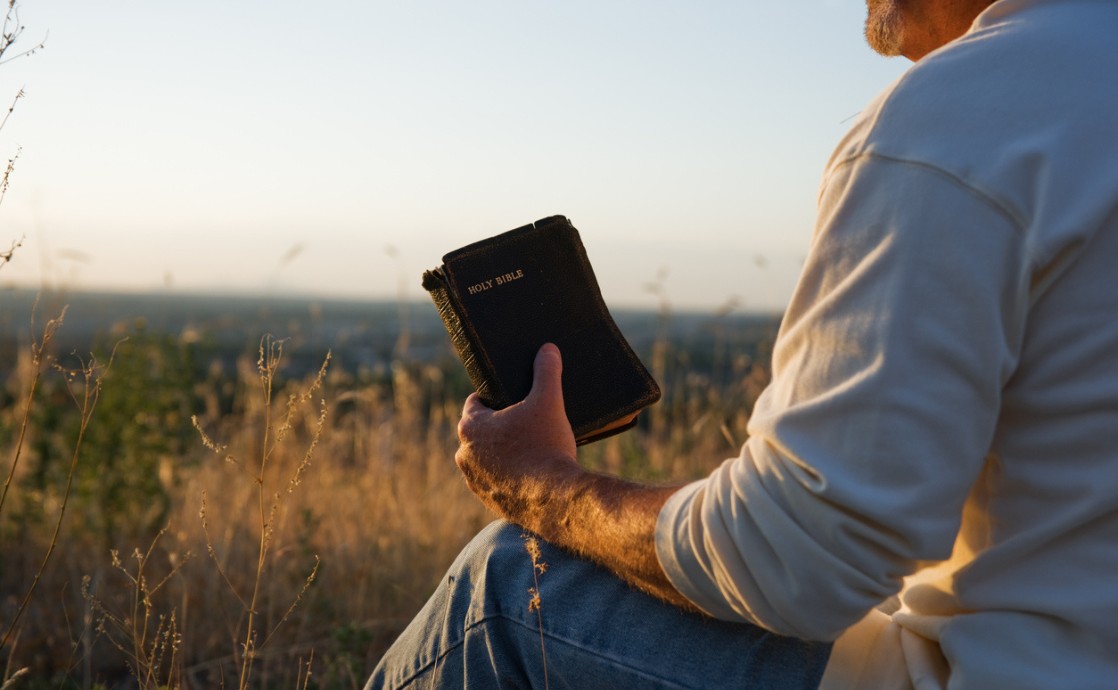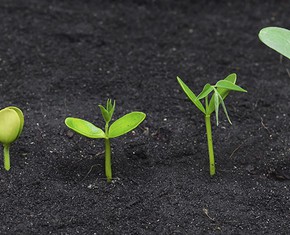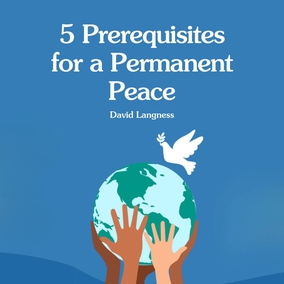The views expressed in our content reflect individual perspectives and do not represent the authoritative views of the Baha'i Faith.
When I reflect on the journey from my roots in the Worldwide Church of God to my embrace of the Baha’i Faith, one concept stands out, illuminating the path of my spiritual evolution: Oneness.
This powerful principle, deeply embedded in the teachings of the Baha’i Faith, has transformed not only my perspective but also my approach to life and spirituality.
At the heart of the Baha’i Faith lies the recognition of oneness — of God, of religion, and of humanity — a profound truth that transcends the boundaries of all forms of identity, including nationality, race, creed, and culture. This principle challenges the notions of separation and hatred that have plagued humanity throughout history, calling us to recognize our interconnectedness and interdependence as members of one human family.
RELATED: When Dad Accepted a New Religion
Abdu’l-Baha, in a speech he gave in Pittsburgh in 1912, characterized this primary principle of Baha’u’llah’s teachings as:
… the proclamation of the oneness of the world of humanity — that all are servants of God and belong to one family; that God has created all and, therefore, His bestowals are universal; and that His providence, training, sustenance and loving-kindness surround all mankind.
In my earlier days within the Worldwide Church of God, there was a strong emphasis on separation — being different. We didn’t focus on the sins of others, but we did focus on being separate from them. We thought everyone was deceived but us, and our focus was mostly on those closest to us religiously. Those who were not us practiced what we deemed “false Christianity.” We emphasized the differences — for example, our rejection of the Trinity doctrine, and other components of accepted, or orthodox, Christian belief. We thought we had clear Biblical support for this, mind you. Here are but two of the many examples I could list.
For all the nations have drunk of the wine of the wrath of her fornication, the kings of the earth have committed fornication with her, and the merchants of the earth have become rich through the abundance of her luxury.” And I heard another voice from heaven saying, “Come out of her, my people, lest you share in her sins, and lest you receive of her plagues. – Revelation 18:3-5 – New King James Version
For I have come to ‘set a man against his father, a daughter against her mother, and a daughter-in-law against her mother-in-law’; and ‘a man’s enemies will be those of his own household.’ He who loves father or mother more than Me is not worthy of Me. And he who loves son or daughter more than Me is not worthy of Me. – Matthew 10:35-37 New King James Version
The first of the above quotes issued a chilling warning about what would happen if we failed to separate ourselves, while the latter gave ample justification from the Savior himself for distancing ourselves even from our closest loved ones.
This theology informed our thoughts and behavior, which were intended to create a narrow, exclusionary uniformity of belief and action through adherence to Biblical texts. We wanted to let the light of our submission to God shine, believing that God would eventually open the eyes of others to see what we saw. But instead of enabling this, our mindset actually perpetuated and increased division. The insistence on the rightness of our views eventually split and then fragmented our own body of believers. God had opened my eyes to many of the Biblical truths — but now he opened my eyes to the fact that these negative outcomes were the fruit of not having understood them properly.
This shattering experience, however, became essential in furthering my spiritual journey. That schism in the church led to my resignation from the full-time ministry. I had to separate my faith from my paycheck. All of this began a slow process of reconciling the above quotes, and many others, with the many Biblical admonitions towards love and unity. Without taking the time to quote them, I’ll just reference Jesus’ admonitions to go after the lost sheep and the parable of the prodigal son.
Ten years after resigning, I finally came to the end of what I call my spiritual dead end. During that time, I had shifted away from a desire to be right with God by being different from others, or you might say “better” than others. This shift was powered by what I came to see as the sign of the Christian covenant, John 13:35: “By this all will know that you are My disciples, if you have love for one another.” I became less worried about adherence to the doctrines I held near and dear, and began looking for people who loved one another, sincerely followed God, and evidenced the fruits of the Spirit through their actions.
That is when I coincidentally began to meet members of the Baha’i Faith.
As I explored them, the Baha’i teachings helped me understand how emphasizing differences and separation is not only detrimental but also contrary to the fundamental truth of our shared humanity. My transition was enabled through a shift away from a focus on the rightness of my views toward a deep recognition that in acknowledging and embracing our essential oneness as a species and, beyond that, with God’s entire creation, we can jointly arrive at views that are more aligned with the creation, and thus also the Creator.
The Baha’i teachings emphasize that all religions express the same divine reality, each suited to the needs of its time and culture. This understanding lays the groundwork for fostering unity among the followers of diverse religious traditions, inviting humanity to move beyond sectarianism and embrace the underlying unity of all faiths.
Baha’u’llah, the prophet and founder of the Baha’i Faith, declared, “The earth is but one country, and mankind its citizens.” This powerful statement encapsulates the Baha’i vision of a unified world where the barriers that divide us — whether they be physical, social, or spiritual — are transcended in the pursuit of collective well-being and prosperity.
Embracing the principle of oneness has profound implications for how we live our lives on a daily basis. It calls us to cultivate empathy, compassion, and understanding in our interactions with others, recognizing that we are all interconnected and share a common destiny. It challenges us to confront prejudice, injustice, and inequality wherever they may exist, striving to create a more just, equitable, and harmonious society for all.
As individuals, we each have a role to play in fostering unity and oneness in the world. It begins with a shift in consciousness — a recognition of our shared humanity and a commitment to building bridges of understanding and cooperation across divides. It involves reaching out to others with love and compassion, seeking to understand their perspectives and experiences, and working together towards common goals.
In this era of unprecedented global challenges, the principle of oneness has never been more relevant or necessary. It serves as a guiding principle for navigating the complexities of our interconnected world and building a more peaceful, just, and sustainable future for generations to come. Without it, our efforts to address global challenges — from international conflict to environmental degradation — result in an increase, not a decrease, in divisive politics, which further polarizes and further exacerbates social injustices, making it impossible for us to achieve the unity necessary to actually solve these challenges.
RELATED: From Black Baptist Preacher to Baha’i Teacher
This journey from separation to oneness has been a transformative one for me, and it continues to shape my worldview and guide my actions. I’ll leave you with a brief explanation of the three “onenesses” the Baha’i teachings emphasize.
Baha’is believe in the existence of a single, unknowable God — the source of all creation and the ultimate reality. This concept emphasizes the unity and singularity of the divine essence. Baha’u’llah affirmed this oneness in his writings:
Consider … the revelation of the light of the Name of God, the Incomparable. Behold, how this light hath enveloped the entire creation, how each and every thing manifesteth the sign of His Unity, testifieth to the reality of Him Who is the Eternal Truth, proclaimeth His sovereignty, His oneness, and His power. This revelation is a token of His mercy that hath encompassed all created things.
Baha’is recognize the essential unity of the major world religions, viewing them as successive chapters in the unfolding of one divine plan for humanity. Each of the world’s major faiths has been founded by a messenger of God and contains essential truths which contribute to the spiritual development of humanity. Baha’u’llah revealed: “These principles and laws, these firmly-established and mighty systems, have proceeded from one Source, and are the rays of one Light.“
Baha’is believe in the essential unity of the human race, transcending differences of race, nationality, and culture. They advocate for the elimination of prejudice and the promotion of unity, equality, and justice for all people. Baha’u’llah emphasized the interconnectedness of humanity when he counseled, “It is not for him to pride himself who loveth his own country, but rather for him who loveth the whole world.”
You May Also Like
Comments

















My hope is you can answer this question. How do you justify this idea of oneness and equality that you speak about in the article when it is a fact that women cannot hold a role in the house of justice nor our members of the LGBTQ community accepted as equals in the behind faith? This is not a gotcha question. It’s one not a single Bahai has answered in any, I have left on this blog. And I bet my prediction ...is correct that no one will respond to this with an answer explaining to me how I should be a part of a community that discriminate. And I so want to be a part of the Bahai community.
People have always made great sacrifices for their religions, sometimes to the point of death, like many Bahá'ís have. The laws represent varying degrees of difficulty for all of us, but we do our best to abide by them. I hope this helps.
thanks for sharing
Baha'u'llah says,
"The Great Being saith: The man of consummate learning and the sage endowed with penetrating wisdom are the two eyes to the body of mankind. God willing, the earth shall never be deprived of these two greatest gifts.
(Tablets of Baha'u'llah, p. 170)
Wade
-Baha'u'llah
This is also very well explained in your book “the rod of iron” which I just finished.
This is also very well explained in your book “the rod of iron” which I just finished.